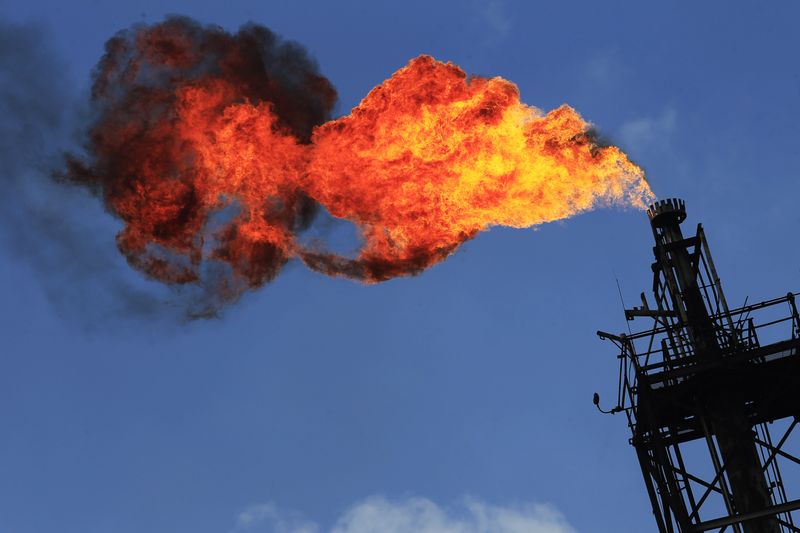Investing.com -- Earnings and profits of natural gas-weighted companies are seen getting better despite the outsized supply of U.S. natural gas versus demand, with four companies particularly — Southwestern Energy (NYSE:SWN), Chesapeake Energy (NYSE:CHK), Range Resources (NYSE:RRC) and EQT (NYSE:EQT) — offering value to investors, Bank of America says.
“Our second conclusion is that at the current forward curve for U.S. gas, valuations for gas weighted E&Ps look compelling, led by SWN, CHK, RRC and EQT, with limited down-side risk contrasting with values we see 80%-175% higher at strip,” analysts BofA said in a note.
“We argue that for gas weighted E&Ps one only has to trust the current forward curve to justify material value. Our POs for SWN, CHK, RRC and EQT imply on average 3x the upside of their generic U.S. oil-weighted E&P peers.”
BofA’s analysts said over the past six months, their studies have highlighted the ‘case for gas,’ or an argument that the dynamics of U.S. natural gas markets and liquefied natural gas, or LNG, have changed.
“Versus our prior long-held view of the U.S. as a stranded gas market, we suggest the combination of capital discipline, full U.S. LNG utilization on an improved international arbitrage post-Ukraine and line of sight for rapid LNG expansion that suggests U.S. gas markets have evolved towards gas-on-gas competition with storage for the first time,” the analysts said.
“This starts with understanding what was behind the volatility that characterized gas markets in 2021/22; anchored on our proprietary analysis that replicates gas prices for the past 10yrs we suggest we can help answer whether it’s reasonable to have confidence in a current forward curve that doubles by 2025.”
U.S. natural gas storage rose by 99 billion cubic feet, or bcf, during the week ended May 12, the Energy Information Administration, or EIA, said last week, announcing a smaller-than-expected build that bolstered sentiment in a market that needs to see less stockpile increases and more demand.
Notwithstanding the smaller-than-expected build for last week, the latest inventory rise put total gas in underground caverns in the United States at 2.24 trillion cubic feet, or tcf. That was 30.3% higher from the year-ago level of 1.719 tcf and 17.9% above the five-year average of 1.9 tcf.
BofA’s analysts, however, differed in opinion, citing higher LNG feedgas demand from the full-scale return of the idled Freeport facility in Texas and cutbacks in gas output by domestic drillers.
“With Freeport LNG back & drilling activity responding to weak spot prices we suggest absent LNG outages, U.S. gas markets are the tightest in a generation,” the analysts said.
